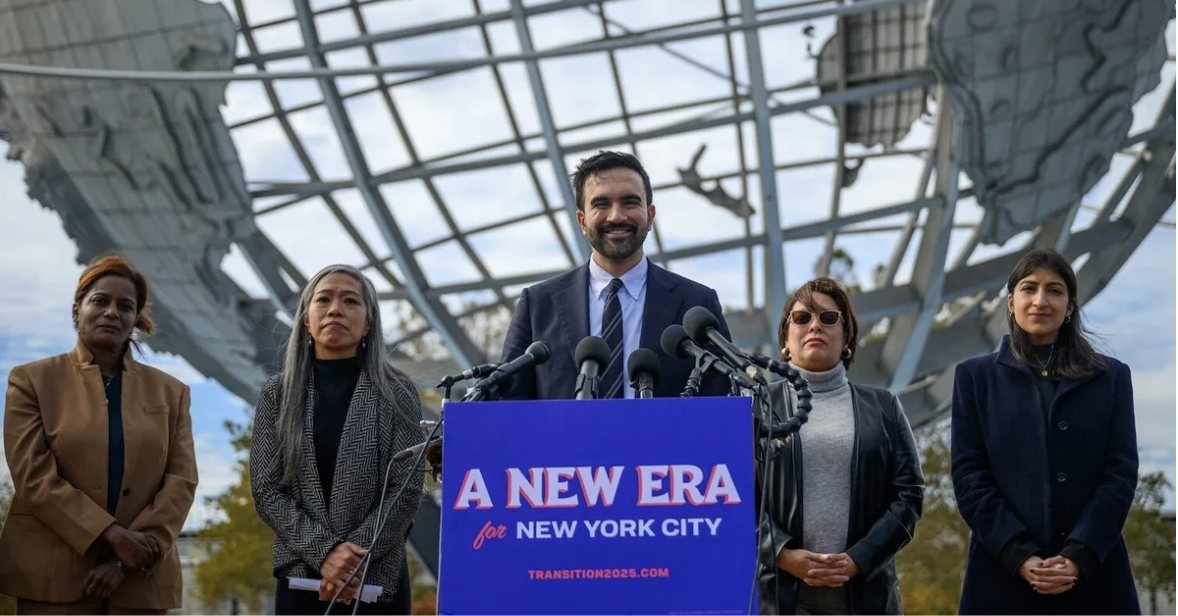Photo courtesy of Canary Media
A Renewed New York: A Brief Look at Mamdani’s Climate Policy
While Mamdani may have campaigned on affordability, he has not shied away from developing comprehensive policies that address New York City’s role in municipal climate protection. On election night, Mamdani issued the following statement: “We are breathing in the air of a city that has been reborn,” he said. “I will wake each morning with a singular purpose: to make this city better for you than it was the day before.”
In his eleven-page strategy plan, “Green Schools for a Healthier New York City,” Zohran outlines a multitude of strategies, including combating environmental racism through an assessment of water and energy facilities (which mainly exist in proximity to disadvantaged communities), integrating renewable energy infrastructure into 500 public schools, building 500 school greenyards, and more.
In addition, he pledged to honor and fortify Local Law 97, which financially penalizes landlords of buildings that exceed a greenhouse gas emission threshold. During his time as a state assembly member, Zohran was a stoic advocate for preventing utility rate increases and preventing the development of a proposed gas plant in Astoria. Zohran’s proactive approach to climate policy so far provides a promising outlook for the upcoming era of New York and serves as a precedent for other city-led climate reforms.
Evalina Sain (CC’29) is a Climate Challenges Representative at Columbia Academics in Foreign Affairs (CAFA), intending to study Sustainable Development and Political Science
Climate Challenges
November 17, 2025 by Evalina Sain
